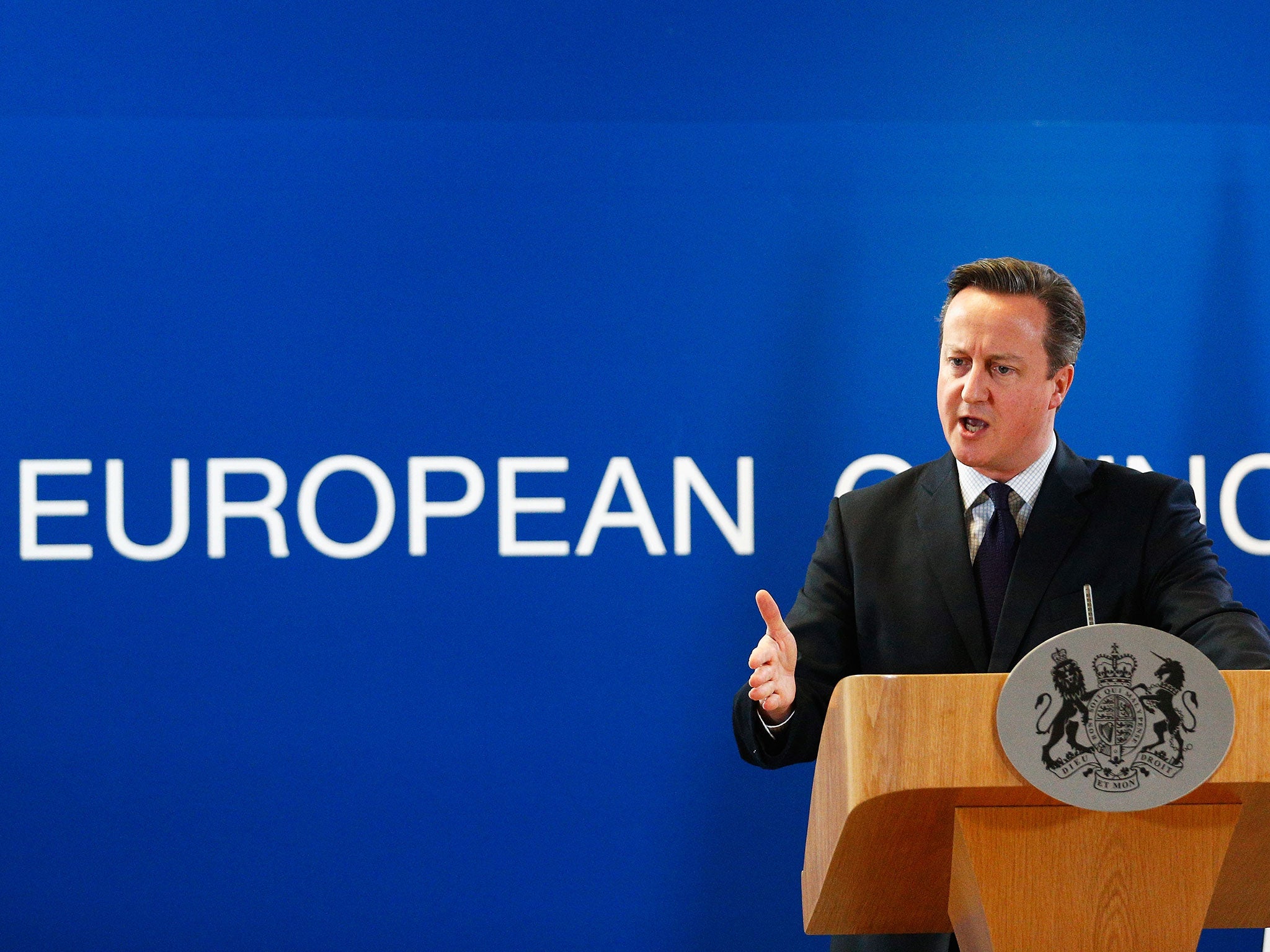A leaked draft of David Cameron’s EU proposals shows there are still big differences between his demands what other EU countries are prepared to give him.
The Prime Minister is heading back to Brussels on Thursday for “crunch time” talks after meeting MEPs earlier this week. The Guardian newspaper has obtained a copy of the draft deal to be discussed.
Issues to be worked out mainly focus on Mr Cameron’s flagship demand to limit in-work benefits for EU migrants arriving in Britain. Here are the key points:
Treaty changes
David Cameron pledged at the start of this morning that his EU deal would be a “legally binding treaty deposited at the United Nations”.
However, the leaked draft shows there is far from a consensus on whether the EU deal will be written into EU treaties at all.
Any reference to treaty changes in the document is reportedly bracketed out – an approach suggesting that there is no consensus on that issue.
Downing Street has previously said its plans would require treaty change to implement.
A previously-suggested compromise is that the new rules could be earmarked for inclusion in EU treaties next time they are changed for other purposes.
The City of London
One of the PM’s demands is for protection for the single market for EU countries who are not members of the eurozone.
This sounds relatively uncontroversial: the proposal has faced less scrutiny and gained less publicity than others around benefits and migration.
It is becoming increasingly important in negotiations, however. A section on allowing non-eurozone members to stall new regulations on banks and other financial institutions has been bracketed out of the draft deal, the Guardian says.
France is said to be worried that Mr Cameron is quietly seeking regulations that would effectively give the City of London special treatment – giving it an in-built advantage and effectively making it an offshore, low-regulation arm of the EU.
Ever-closer union
One area that would almost certainly require treaty change to implement is giving Britain an opt-out from the “ever-closer union” clause of the EU.
There is said to be no consensus on this issue – in contrast to the “full-on treaty change” promised by Mr Cameron last year.
Whether the new benefit curbs affect Britain only
One of the areas up for dispute is whether the new benefit restrictions apply to Britain as a special case, or uniformly across the EU.
Central and eastern European countries with many foreign nationals living abroad are keen to limit the effects of the rule change on their citizens.
Thus Poland, the Czech Republic, and others would like to see the rules only applied to Britain.
Smaller countries like Luxembourg and Malta however have a long-term interest in EU treaties applying uniformly and consistently across states and have voiced opposition to this change.
One aspect of the benefit changes – restricting the payment of child benefit for children living in other countries – was initially restricted to Britain but has reportedly been re-instated for all EU nations in the latest draft.
A possible compromise that has been floated is to apply the emergency benefits brake rules only to countries who did not implement transitional controls during EU enlargement.
Subscribe to Independent Premium to bookmark this article
Want to bookmark your favourite articles and stories to read or reference later? Start your Independent Premium subscription today.


Join our commenting forum
Join thought-provoking conversations, follow other Independent readers and see their replies